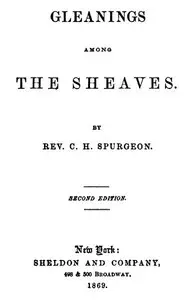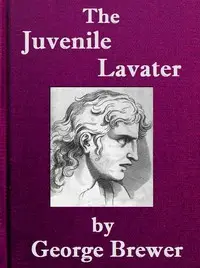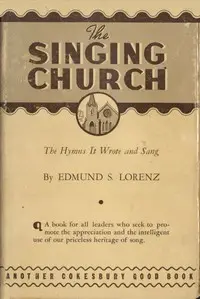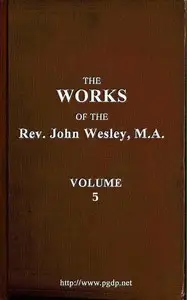"The Glad Tidings" by E. J. (Ellet Joseph) Waggoner is a theological exploration of the Epistle to the Galatians, a journey back to the core of the true Gospel. It's a passionate defense of salvation through unwavering faith in Jesus Christ, standing firm against the shifting sands of human endeavors and rigid laws. The story opens by spotlighting the Galatian churches, ensnared by confusion as false teachers promote a distorted gospel of legalism, pushing circumcision as a ticket to salvation. Readers learn of Paul's authority, who reminds the Galatians of his divine inspiration, challenging the arising human traditions. In this narrative, Paul is shocked by the fast-growing deviation with the people, making it clear you must adhere to the authentic Gospels of truth.
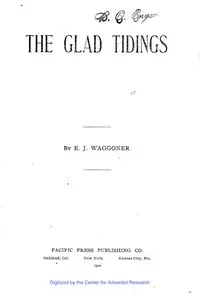
The Glad Tidings
By E. J. (Ellet Joseph) Waggoner
In a world of religious uncertainty, a messenger confronts a misled flock, guiding them back to the true path of salvation through faith.
Summary
About the AuthorEllet Joseph "E.J." Waggoner was a Seventh-day Adventist particularly known for his impact on the theology of the church, along with friend and associate Alonzo T. Jones at the 1888 Minneapolis General Conference Session. At the meeting of the General Conference of Seventh-day Adventists Ellet J. Waggoner along with Alonzo T. Jones presented a message on justification supported by Ellen G. White, but resisted by church leaders such as G. I. Butler and others. He supported theological issues such as the meaning of "righteousness by faith", the nature of the Godhead, the relationship between law and grace, and Justification and its relationship to Sanctification.
Ellet Joseph "E.J." Waggoner was a Seventh-day Adventist particularly known for his impact on the theology of the church, along with friend and associate Alonzo T. Jones at the 1888 Minneapolis General Conference Session. At the meeting of the General Conference of Seventh-day Adventists Ellet J. Waggoner along with Alonzo T. Jones presented a message on justification supported by Ellen G. White, but resisted by church leaders such as G. I. Butler and others. He supported theological issues such as the meaning of "righteousness by faith", the nature of the Godhead, the relationship between law and grace, and Justification and its relationship to Sanctification.






